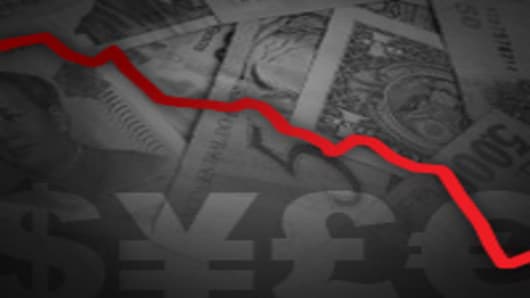Earlier this week Simon Derrick at Bank of New York Mellon drew comparisons between 2011 and 2008 and found similarities such as high oil, rising euro zone rates and bailouts (of banks in 2008, countries in 2011).
One fund manager believes Derrick is wrong - not the message but on timing. "Conditions are becoming dangerously similar to the ones prevailing in mid-to-late 2007. It has been several years since the number of stocks filtering through our value screens has been so limited, and the opposite can be said about the number of overvalued stocks," said Pedro Noronha, a fund manager at Noster Capital in London in his monthly note to clients.
March was not a good month for Noronha who saw his fund lose 0.9 percent on the month, driving his yearly return below five percent following a good start to the year in January and February.
"We only hope that the majority of market participants have learned their lesson from the past couple of years, although most evidence we are observing suggests otherwise," he wrote.
"We urge investors who want to have long exposure to be very selective and only buy very good quality stocks with a proven track record of superior return on equity during periods of economic duress.
If there has ever been a time to be particularly picky with your stock selection, that time is now," he warned.
Noronha sits in the camp that believes "Helicopter Ben" – as Federal Reserve Chairman Ben Bernanke is called by some analysts because of his money-printing policy - and the second round of quantitative easing(QE2) has manipulated stock prices higher.
The "one thing the Fed needs to realize is that it can't grow the intrinsic value of stocks – only companies can do that, by earning returns above their cost of capital," he pointed out. As a result, Noronha is chasing liquidity.
"Our contrarian goal of being greedy when others are fearful can only be achieved if we have sufficient liquidity to act when opportunities arise. QE2 is reportedly going to come to an end June 30th and the markets, which tend to be discounting mechanisms, should start discounting that fact any time now."
"Good businesses will likely once again sell at appropriate valuations in the not too distant future and we will be ready to capitalize on those opportunities," he added.
Sell on Greed, Buy on Blood
With margin debt ballooning to 2.2 percent of the total stock market capitalization, or $350 billion, Noronha believes volatility and buying opportunities are on the way.
"As we have learnt with Baron Rothschild, the time to buy is when there is blood on the streets, conversely, the time to sell should be in moments of extreme greed, when assets are overvalued and investors are not being properly remunerated for the amount of risk they are taking, such as now," he wrote.
From here Noronha believes either the Fed steps back from QE "as it should have done after QE1" or Bernanke, worried about unemployment as we approach an election year extends quantitative easing and keeps asset market bubbles inflating for as long as he can in the "utopian" hope that with overstimulation everything will go back to as it was before 2007.
"We just hope that the adults in the room prevent this scenario from happening as nothing could be more dangerous, especially at a time when most G7 rates are at an extraordinarily accommodative level and there is not much ammunition left in the bag," he wrote.
"This will be further complicated by the fact that next year is an election year in the US and the choice of Fed strategy will very much dictate the fate of President Obama."



